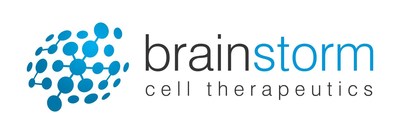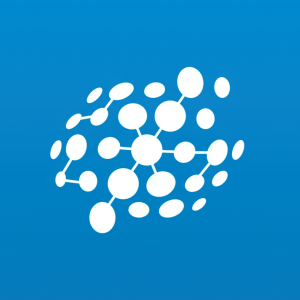BrainStorm Announces Positive Topline Data in Phase 2 Study Evaluating NurOwn® as a Treatment for Progressive MS
BrainStorm Cell Therapeutics (NASDAQ: BCLI) announced positive topline data from its Phase 2 trial of NurOwn® for progressive multiple sclerosis (MS). The trial met its primary endpoint for safety and demonstrated improvements in secondary outcomes, including neurologic function and cognition. Of the 20 enrolled patients, 16 completed the study, with significant enhancements in measures like the timed 25-foot walk test and cognitive processing tests. The results suggest NurOwn® has potential as a therapeutic option for progressive MS, urging further evaluations and data presentation at scientific meetings.
- Achieved primary endpoint of safety in the Phase 2 trial.
- 80% of enrolled patients completed the study with no deaths reported.
- Significant improvements in secondary endpoints: 14% and 13% of patients showed improvements in the timed 25-foot walk and 9-hole peg tests, respectively.
- 38% of patients reported a 10-point improvement in walking function (MSWS-12).
- Demonstrated improvement in cerebrospinal fluid biomarkers indicating potential therapeutic effects.
- Two patients discontinued due to procedure-related adverse events.
Insights
Analyzing...
NEW YORK, March 24, 2021 /PRNewswire/ -- BrainStorm Cell Therapeutics Inc. (NASDAQ: BCLI), a leading developer of adult stem cell therapies for neurodegenerative diseases, announced today topline data from the Company's Phase 2 trial evaluating three repeated administrations of NurOwn® (MSC-NTF cells), each given 2 months apart, as a treatment for progressive multiple sclerosis (MS). The study achieved the primary endpoint of safety and improvements were observed in secondary endpoints spanning neurologic function, cognition, and biomarkers.

"This is an extremely exciting outcome, as it demonstrates the potential of our proprietary cell therapy NurOwn in progressive MS and expands the body of evidence supporting the NurOwn® technology platform in neurodegenerative disease," said Chaim Lebovits, Chief Executive Officer of BrainStorm. "We appreciate the efforts of the Brainstorm team and the commitment and expertise of the clinical trial sites and patients who participated in this important trial despite the challenges imposed by the COVID-19 pandemic. We plan to fully evaluate the results of this study, review the data with the MS scientific community and hopefully continue to advance NurOwn as an important therapeutic option for patients with progressive MS."
The 28-week open-label Phase 2 clinical trial enrolled 20 primary and secondary progressive MS patients based on the 2017 revised McDonald Criteria, ages 18-65, with baseline Expanded Disability Status Scale (EDSS) scores between 3-6.5, without evidence of relapse within 6 months of enrollment, able to walk 25 feet in 60 seconds or less and were permitted to be on a stable dose of disease modifying therapy.
Of the 20 patients enrolled, 18 were treated and 16 (
MS Function and Cognition measures in the top-line results included the timed 25-foot walk (T25FW); 9 hole peg test (9-HPT); Low Contrast Letter Acuity (LCLA); Symbol Digit Modality Test (SDMT); and the 12 item MS Walking Scale (MSWS-12). Prespecified
In addition, NurOwn treated patients showed a mean improvement from baseline of
Cerebrospinal fluid (CSF) biomarkers were obtained at 3 consecutive time points, just prior to each intrathecal administration of NurOwn. We observed increases in neuroprotective molecules (VEGF, HGF) and decreases in neuroinflammatory biomarkers (MCP-1, SDF-1 and osteopontin). Additional secondary efficacy data, and detailed CSF and blood biomarker analyses are currently underway and will be reported at upcoming scientific meetings.
"These positive results indicate the potential of MSC-NTF cells to lessen inflammatory mechanisms, promote repair, and restore function in progressive MS, a condition for which there is great need for effective therapy," said Jeffrey Cohen, M.D, Director of Experimental Therapeutics, Cleveland Clinic Mellen Center for MS. Dr. Cohen reports no disclosures related to this study.
"We applaud Brainstorm for completion of this first in human trial of NurOwn in progressive MS, and are encouraged by the early indication of safety and effectiveness," said Mark Allegretta, PhD, Vice President of Research at the National MS Society. "We're hopeful that our collaboration will uncover insights into clinically relevant biomarkers that may predict a treatment effect in progressive MS."
Ralph Kern MD MHSc, President and Chief Medical Officer of Brainstorm stated, "The unprecedented results of this phase 2 clinical trial provide strong support for the potential of NurOwn to address the unmet clinical and biological need in progressive MS. Currently, few therapeutic options exist to address the relentless clinical progression and disability accumulation, ongoing compartmentalized and intrathecal CNS inflammation, and progressive loss of neural function in progressive MS. We plan to present a detailed summary of the study outcomes at an upcoming scientific meeting, publish our findings in a peer-reviewed journal and consider how best to advance NurOwn in progressive MS."
Stacy Lindborg Ph.D., EVP and Head of Global Clinical Research added, "We are pleased by the consistency of treatment effect observed across these functional and cognitive measures in patients who were either on standard of care or had prior treatment with existing disease modifying treatments. Our goal was to achieve proof of concept in progressive MS through an efficient design, which we have successfully delivered. We are also pleased to see accumulating evidence and confirmation of NurOwn's mechanism of action through CSF biomarker data in patients with multiple neurodegenerative diseases."
Study Design
The Phase 2 NurOwn® trial was a multi-center, open-label trial designed to evaluate the safety and efficacy of NurOwn® in 20 progressive MS patients at four MS centers of excellence: Cleveland Clinic, Mount Sinai School of Medicine,Stanford, and USC. Progressive MS patients were screened, provided informed consent and following a 10-week run-in period received three intrathecal administrations of 100-125 million autologous MSC-NTF cells at 2-month intervals. Patients were followed for 28 weeks after the first treatment. The primary endpoint of the trial was safety. Secondary endpoints included functional and cognitive measures and modulation of CSF and blood biomarkers (neurotrophic factors, neurodegenerative, and inflammatory biomarkers). Outcomes assessed included: Timed 25-Foot Walking Speed (T25FW); Expanded Disability Status Scale (EDSS); 9-Hole Peg Test (9HPT); Low Contrast Letter Acuity (LCLA); Symbol Digit Modality Test (SDMT); the 12 item MS Walking Scale (MSWS-12); average daily step count (using a wearable sensor); and quantitative MRI measures. For more information, refer to ClinicalTrials.gov Identifier: NCT03799718. A grant for
About progressive MS
Progressive MS is a chronic neuroinflammatory and neurodegenerative disorder that affects the brain and spinal cord. MS affects approximately 1 million individuals in the U.S. and 2.5 million individuals worldwide. Approximately half of individuals affected by MS will eventually develop a progressive form of the disease, which may lead to increasing levels of motor, visual, and cognitive functional impairment, and relentless accumulation of disability.
About NurOwn®
The NurOwn® technology platform (autologous MSC-NTF cells) represents a promising investigational therapeutic approach to targeting disease pathways important in neurodegenerative disorders. MSC-NTF cells are produced from autologous, bone marrow-derived mesenchymal stem cells (MSCs) that have been expanded and differentiated ex vivo. MSCs are converted into MSC-NTF cells by growing them under patented conditions that induce the cells to secrete high levels of neurotrophic factors (NTFs). Autologous MSC-NTF cells are designed to effectively deliver multiple NTFs and immunomodulatory cytokines directly to the site of damage to elicit a desired biological effect and ultimately slow or stabilize disease progression.
About BrainStorm Cell Therapeutics Inc.
BrainStorm Cell Therapeutics Inc. is a leading developer of innovative autologous adult stem cell therapeutics for debilitating neurodegenerative diseases. The Company holds the rights to clinical development and commercialization of the NurOwn® technology platform used to produce autologous MSC-NTF cells through an exclusive, worldwide licensing agreement. Autologous MSC-NTF cells have received Orphan Drug designation status from the U.S. Food and Drug Administration (FDA) and the European Medicines Agency (EMA) for the treatment of amyotrophic lateral sclerosis (ALS). BrainStorm has completed a Phase 3 pivotal trial in ALS (NCT03280056); this trial investigated the safety and efficacy of repeat-administration of autologous MSC-NTF cells and was supported by a grant from the California Institute for Regenerative Medicine (CIRM CLIN2-0989). BrainStorm completed under an investigational new drug application a Phase 2 open-label multicenter trial (NCT03799718) of autologous MSC-NTF cells in progressive multiple sclerosis (MS).
For more information, visit the company's website at www.brainstorm-cell.com.
Safe-Harbor Statement
Statements in this announcement other than historical data and information, including statements regarding future NurOwn® manufacturing and clinical development plans, constitute "forward-looking statements" and involve risks and uncertainties that could cause BrainStorm Cell Therapeutics Inc.'s actual results to differ materially from those stated or implied by such forward-looking statements. Terms and phrases such as "may," "should," "would," "could," "will," "expect," "likely," "believe," "plan," "estimate," "predict," "potential," and similar terms and phrases are intended to identify these forward-looking statements. The potential risks and uncertainties include, without limitation, BrainStorm's need to raise additional capital, BrainStorm's ability to continue as a going concern, the prospects for regulatory approval of BrainStorm's NurOwn® treatment candidate, the initiation, completion, and success of BrainStorm's product development programs and research, regulatory and personnel issues, development of a global market for our services, the ability to secure and maintain research institutions to conduct our clinical trials, the ability to generate significant revenue, the ability of BrainStorm's NurOwn® treatment candidate to achieve broad acceptance as a treatment option for ALS or other neurodegenerative diseases, BrainStorm's ability to manufacture, or to use third parties to manufacture, and commercialize the NurOwn® treatment candidate, obtaining patents that provide meaningful protection, competition and market developments, BrainStorm's ability to protect our intellectual property from infringement by third parties, heath reform legislation, demand for our services, currency exchange rates and product liability claims and litigation; and other factors detailed in BrainStorm's annual report on Form 10-K and quarterly reports on Form 10-Q available at http://www.sec.gov. These factors should be considered carefully, and readers should not place undue reliance on BrainStorm's forward-looking statements. The forward-looking statements contained in this press release are based on the beliefs, expectations and opinions of management as of the date of this press release. We do not assume any obligation to update forward-looking statements to reflect actual results or assumptions if circumstances or management's beliefs, expectations or opinions should change, unless otherwise required by law. Although we believe that the expectations reflected in the forward-looking statements are reasonable, we cannot guarantee future results, levels of activity, performance or achievements.
CONTACTS
Investor Relations:
Corey Davis, Ph.D.
LifeSci Advisors, LLC
Phone: +1-646-465-1138
cdavis@lifesciadvisors.com
Media:
Paul Tyahla
SmithSolve
Phone: +1-973-713-3768
paul.tyahla@smithsolve.com
![]() View original content:http://www.prnewswire.com/news-releases/brainstorm-announces-positive-topline-data-in-phase-2-study-evaluating-nurown-as-a-treatment-for-progressive-ms-301254709.html
View original content:http://www.prnewswire.com/news-releases/brainstorm-announces-positive-topline-data-in-phase-2-study-evaluating-nurown-as-a-treatment-for-progressive-ms-301254709.html
SOURCE Brainstorm Cell Therapeutics Inc







